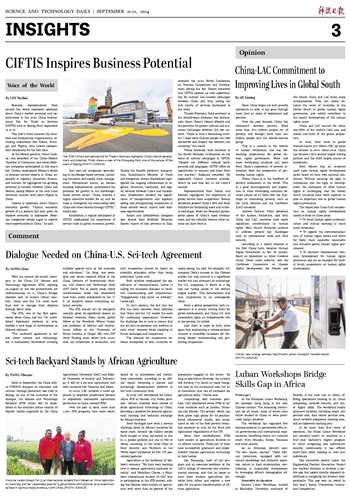
With the second six-month extension to the China-U.S. Science and Technology Agreement (STA) expiring on August 27, the two governments are communicating on it, China's foreign ministry said. At today's critical juncture, China and the U.S. need more than ever to manage their disputes through direct talks.
The STA, one of the first agreements when China and the U.S. established diplomatic relations in 1979, marked a new stage of development in bilateral relations.
"The landmark agreement is not just about science and technology, but a mechanistic framework covering multiple aspects such as the economy and education," Liu Qing, vice president and senior research fellow at the China Institute of International Studies, told Science and Technology Daily (S&T Daily). But in recent years, many collaborations under this framework have been overly interpreted by the U.S. as sensitive issues concerning national security.
The STA should not be abrogated casually, given its significant impact on bilateral relations, Klaus Larres, global fellow at the Woodrow Wilson Center and professor of History and International Affairs at the University of North Carolina at Chapel Hill, told S&T Daily. Finding areas where both countries can collaborate is invaluable, and tech cooperation should be based on scientific principles rather than being politicized, Larres said.
Both scholars emphasized the significance of communication. Larres is calling for increased dialogue to facilitate understanding and collaboration."Engagements help move us forward," Larres said.
In Liu's opinion, the fact that the STA has been renewed twice indicates that China and the U.S. realize the need for continuing negotiations. However, the challenge lies in how to ensure that the sci-tech cooperation can conform to each other' interests while adapting to future exchanges and cooperation.
The demand for cooperation between enterprises in both countries remains strong, Liu said. For example, U.S. company Tesla's success in the Chinese market not only secured it a significant market but also advanced its technology. For U.S. companies, it would be a big loss not having access to the world's largest market. This demonstrates that tech cooperation is an unstoppable trend.
From a global perspective, tech cooperation is a crucial driving force for global development, and China-U.S. tech cooperation plays an indispensable role in the process, Liu added.
And there is hope as both sides agree that maintaining a communication channel is incredibly necessary for fostering deeper understanding and promoting cooperation.


 Next
Next




